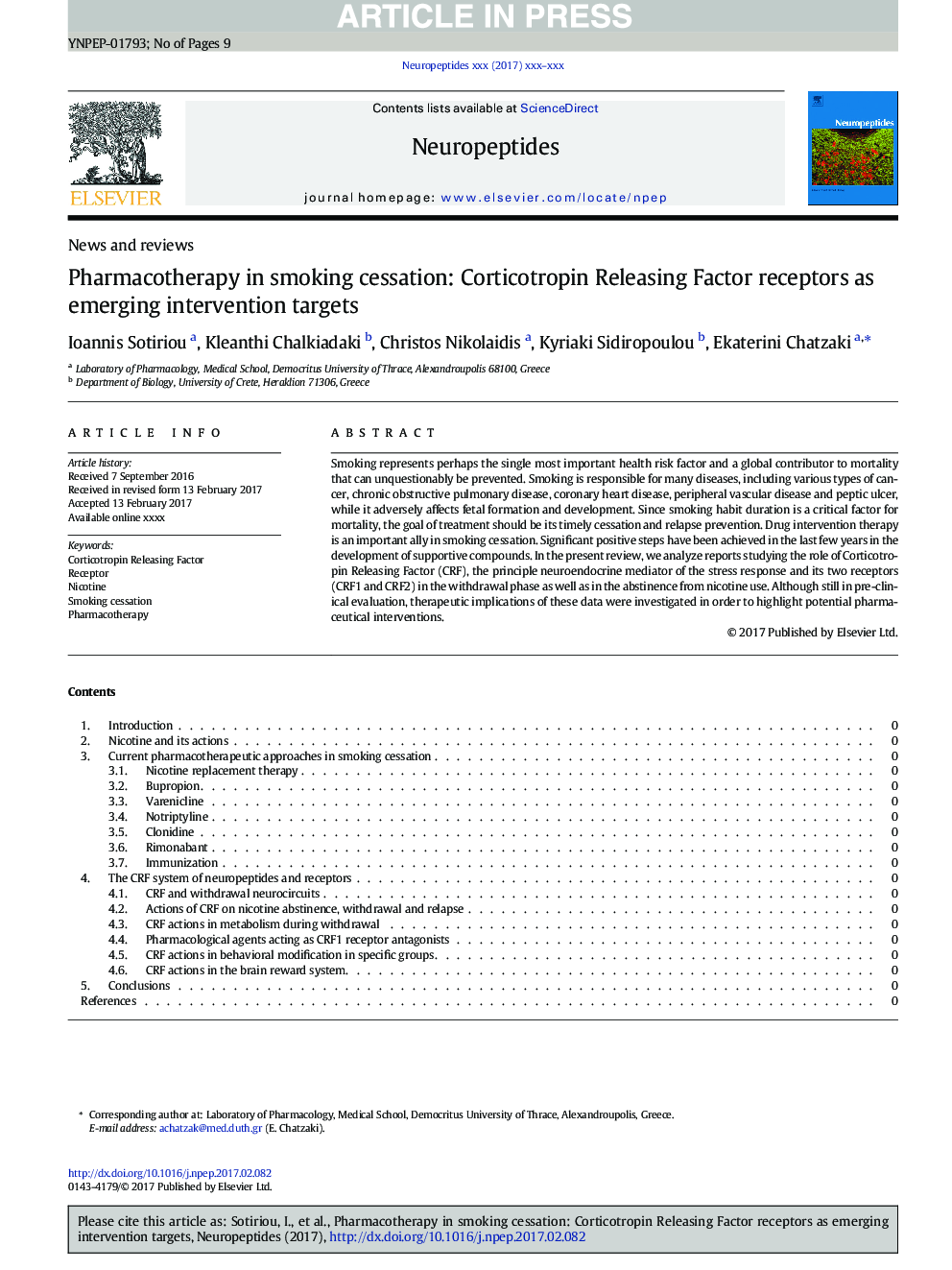| Article ID | Journal | Published Year | Pages | File Type |
|---|---|---|---|---|
| 8633635 | Neuropeptides | 2017 | 9 Pages |
Abstract
Smoking represents perhaps the single most important health risk factor and a global contributor to mortality that can unquestionably be prevented. Smoking is responsible for many diseases, including various types of cancer, chronic obstructive pulmonary disease, coronary heart disease, peripheral vascular disease and peptic ulcer, while it adversely affects fetal formation and development. Since smoking habit duration is a critical factor for mortality, the goal of treatment should be its timely cessation and relapse prevention. Drug intervention therapy is an important ally in smoking cessation. Significant positive steps have been achieved in the last few years in the development of supportive compounds. In the present review, we analyze reports studying the role of Corticotropin Releasing Factor (CRF), the principle neuroendocrine mediator of the stress response and its two receptors (CRF1 and CRF2) in the withdrawal phase as well as in the abstinence from nicotine use. Although still in pre-clinical evaluation, therapeutic implications of these data were investigated in order to highlight potential pharmaceutical interventions.
Related Topics
Life Sciences
Biochemistry, Genetics and Molecular Biology
Endocrinology
Authors
Ioannis Sotiriou, Kleanthi Chalkiadaki, Christos Nikolaidis, Kyriaki Sidiropoulou, Ekaterini Chatzaki,
